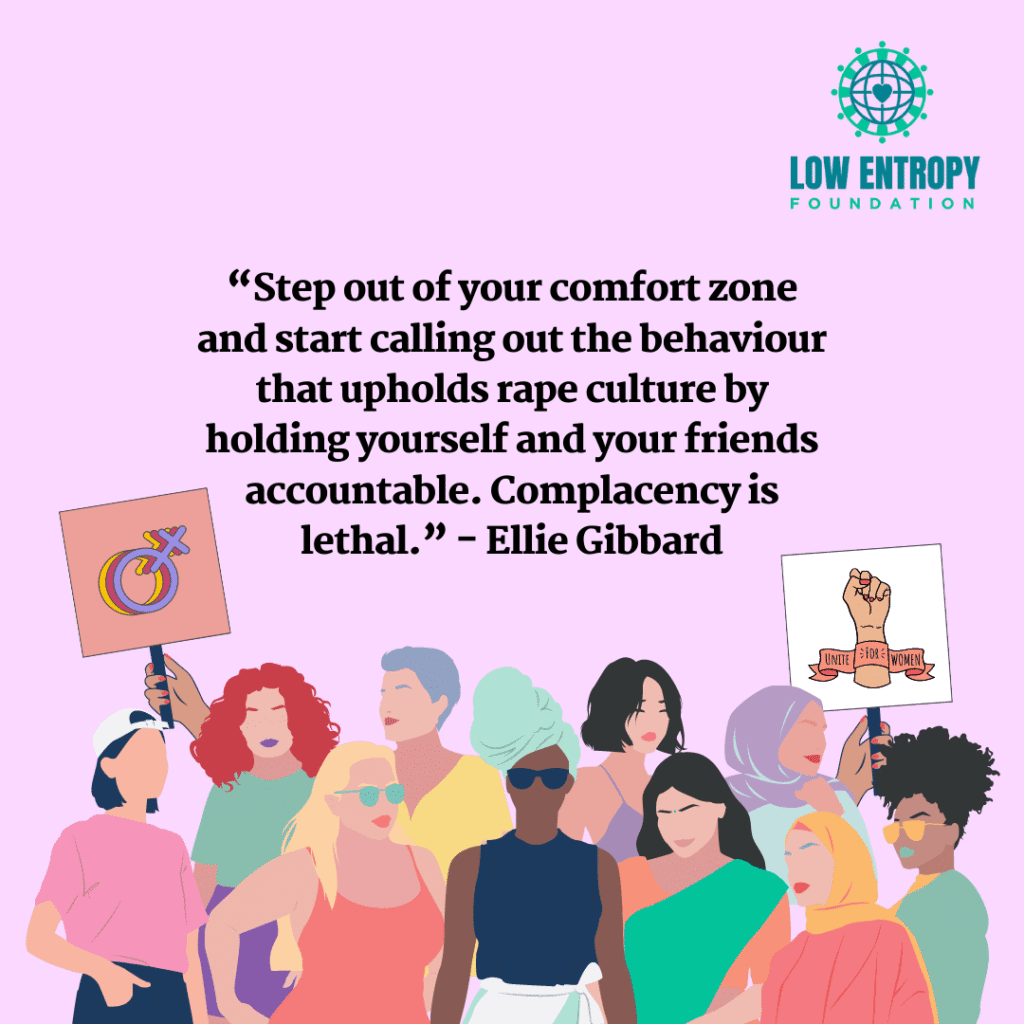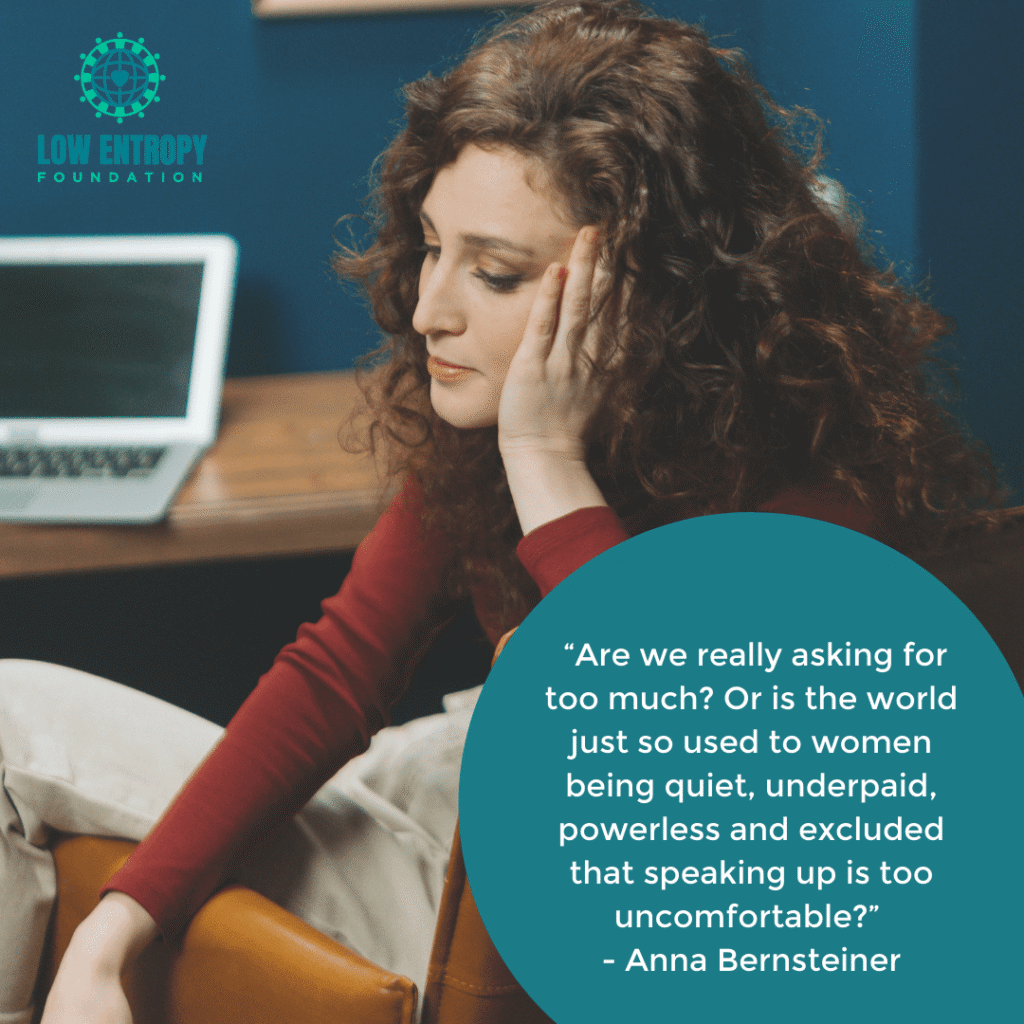Just Uncomfortable

Low Entropy Volunteer Writer Ellie Gibbard sends a message to men about accountability and how to be an effective bystander for violence and harassment against women. Following the tragic death of a young woman in the U.K. by the name of Sarah Everard, the floodgates around women’s rights and safety seemed to fly open. […]
Nothing Without a Woman or a Girl

Low Entropy Volunteer Writer Anna Bernsteiner speaks up and speaks out on gender inequality and empowering women. Cautioning against complacency, she reminds us that we still have a long way to go. “It’s a Man’s Man’s Man’s World” started playing on the radio when I was driving through the city yesterday. I laughed. […]
